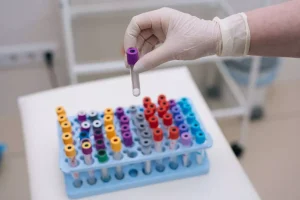
The best way to prevent relapse is to get help for your addiction from a licensed drug and alcohol rehab facility. Effective, personalized treatment can help you discover the root cause of your substance abuse and develop the skills you need to remain sober. Substance use disorders are complex and progressive diseases that require constant dedication and hard work to maintain lifelong recovery. Unfortunately, many going back to rehab people believe the misconception that attending an addiction treatment program will cure their substance use disorder. While treatment is necessary to overcome addiction, you must continue to practice your recovery maintenance techniques outside of treatment. This lack of commitment, among other factors, is often cited for the “revolving door syndrome,” or a cycle of treatment, relapse, and a return to treatment.
ADDICTION TREATMENT

You can also consider returning to school or pursuing a new career path aligned with your values and passions. Meaningful work adds structure to your days and can deeply contribute to your life satisfaction. Many in recovery find fulfillment in mentoring others or sharing their experiences at support groups. You can join organizations supporting addiction recovery and educate your community about recovery’s challenges and rewards. Various types of therapies will be used throughout the recovery process, depending on your needs and the rehab program you are attending.
How to Find Purpose and Fulfillment in Recovery

For example, your employer may require you to remain abstinent from drug or alcohol use and to follow through with treatment recommendations made by your healthcare providers. These expectations play a vital role in your recovery by keeping you accountable. Fortunately, there are laws to protect you from being fired for going to rehab. However, you can get fired for going to rehab if you are still using drugs or alcohol or if your substance abuse interferes with your ability to do your job safely and effectively. No matter what kind of treatment you chose the first time, we have several different treatment options if you need to go back to rehab.

Challenges and Opportunities in Life After Rehab
- This is because people who relapse will often use the same number of drugs or drink the same amount of alcohol that they did before going to rehab.
- This is only one of many reasons why it’s important, throughout your time of healing, to be completely transparent in all your interactions.
- Many former “unemployable” people went on to become successful entrepreneurs or independent contractors.
Keep up on new treatment methods, new intervention methods, new self help techniques, new drug and alcohol rehab centers and much more. Growth in recovery occurs when you give away what you’ve learned. Consider giving the gift of sponsorship if your recovery is strong. There are so many hurting people out there who need what you have. Deepening your spirituality may also include extending a helping hand to others. Volunteer work offers a satisfying way to help others outside of your program and may support your personal mission or vision statement for your life.
- Once you have made a decision about going to rehab, you will then need to begin looking for treatment programs.
- The decision to return to rehab requires you to make sacrifices, but you’ll be glad you did when you get to the end of your process.
- Once you get cocky, you are at risk of relapsing but if you do relapse, don’t give up, just get back on track and believe in what you are doing.
- You may need to attend therapy sessions and receive other services for 9 or more hours each week (3 hours a day on 3 days of the week).
Do I Have to Go Back to Rehab if I Relapse?

Along with the action steps you need to care for your physical body, don’t neglect your mind and spirit, either. Mental and emotional health are both important parts of your recovery. Relationships and romance can bring up all sorts of emotions and personal issues. The elation of a budding romance gives way to tension as you work out the many normal, natural bumps in the road that all relationships undergo. In time, you’ll be on more solid footing in recovering and able to expand your life to include new romantic partners.
- This is your opportunity to hear what the employer is concerned about, and to present your own concerns, if any.
- Addiction is a family disease—it affects not just the person struggling with substance use but everyone in the family system.
- Last year, Davidson was charged with reckless driving after he crashed a car into a Beverly Hills home.
- Continued use after relapse is dangerous, deadly, and makes recovery even more complicated.
Keeping yourself accountable and staying on your meds are important ways to do that. Your past employer can disclose information about your job performance and the reasons you were let go to a prospective new employer. However, most employers refrain from sharing such information to avoid any discrimination claims.

” Well, the answer isn’t always a simple “yes” or “no.” There are several factors to consider to determine whether or not you should go back to rehab after a relapse. Reach out to a treatment provider for free today for immediate assistance. During intake you will be asked some more questions about your background & medical history. If your pattern appears more like a “slip” and not a relapse, reach out to your counselor or sponsor, find a meeting, or schedule an outpatient session. Explore the circumstances that resulted in your “slip” and avoid triggers.
Paying for Treatment
The great news is that just like the first time, help is only a phone call away. You can admit powerlessness all over again, reach out to a rehab for help, https://ecosoberhouse.com/ and begin rebuilding your life again. Hopefully, the relapse hasn’t gone on for too long, but even if it has, it’s never late to get help for an addiction.
Everyone’s situation is different, but if you want to achieve long-term recovery, returning to rehab and getting to the root of your relapse will help you prevent another relapse in the future. True recovery doesn’t mean you’ve just abstained from the substance. It also means you’re mentally, physically, and emotionally well and balanced. If you are coping with a substance use disorder, it is crucial that you get help.
